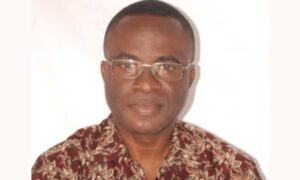Tony Elumelu: A Billionaire’s Story

Tony Elumelu, officially referred to as Anthony Onyemaechi Elumelu CFR, was born on March 22, 1963, in Nigeria. He is an economist and philanthropist. He is the founder of The Tony Elumelu Foundation as well as the chairman of Heirs Holdings and Transcorp.
This Nigerian-born philanthropist, investor, and entrepreneur began his career in sales before ascending the corporate ladder to lead the United Bank for Africa, one of Africa’s most successful brands.
Tony Elumelu received a degree in economics from the university with a lower grade point average. He applied for a bank job despite the bank’s requirement of a minimum of Second Class, upper-division results with a lower degree in economics. He was hired as an entry-level analyst. With only 12 months of experience, he became the youngest manager of a bank branch at the time.
From a salesman to bank manager, entry-level analyst to the chairman of Heirs Holdings, United Bank for Africa, and founder of The Tony Elumelu Foundation, he eventually rose through the ranks.
Elumelu asserts that luck played a significant role in his rapid promotion to bank branch manager.
Elumelu’s business focuses on helping Africans and African nations grow economically. The Tony Elumelu Foundation’s primary mission has been to assist young entrepreneurs in achieving success, and he takes great pleasure in doing so.
He is a Commander of the Order of The Niger (CON) and Individual from the Member of The Order of the Federal Republic (MFR) and was perceived as one of “Africa’s 20 Most Influential Individuals in 2012” by Forbes magazine.
The rise of Tony Elumelu
Tony Elumelu was a graduate of Bendel State University with a Second Class Lower (2.2) grade. He was confident in his ability to perform, so much so that he applied for a job at the All States Trust Bank, which only hired people with a 2.1 degree.
In one of his posts, Elumelu noted that his cover letter from the time stated;
“I know I may not have met the qualifying criteria for the advertised roles, but I am very brilliant, I am purpose-driven, and I will make the bank proud.”
Elumelu was confident in his ability to deliver beyond what his certificate stated. I know I can do so much more, and my 2:2 degree is not proof of the full extent of my intelligence and ability.
He proceeded to secure employment with the bank as an entry-level analyst. He also carried out his promises. So much so that, at just 27 years old, he was promoted to branch manager within a short time.
He wrote in a piece he wrote about his meteoric rise;
“I prioritized getting things done, was energized, creative, and hardworking. It was also good fortune that my bosses, Toyin Akin-Johnson and Ebitimi Banigo, took notice, and then, believed in me.”
After only a short time working for the bank, they decided to take a chance on me and appointed me as branch manager. They were prepared to invest in me and my abilities because they recognized in me the essential qualities of a good leader.
Tony Elumelu’s ascension to billionaire status
Tony Elumelu has achieved nothing short of phenomenal success. Tony Elumelu ranked 31 on Forbes’ list of Africa’s richest men in 2015, with $700 million.
His breakthrough came when, at the age of 34, he and a group of investors acquired Crystal Bank Limited, a troubled bank that was on the verge of going bankrupt in 2007. As the bank’s CEO, he then turned around the bank’s fortunes, which were renamed Standard Trust Bank.
It is interesting to note that while he was in charge of Crystal Bank’s operations, the idea of a debt-for-equity swap was first introduced to the Nigerian banking industry. Elumelu claims that this was the idea that helped the bank turn around because some large depositors were asked to show their faith and confidence in the team by investing in the new company instead of making deposits.
He oversaw the merger with United Bank of Africa in 2005, which at the time was Nigeria’s third-largest bank. Curiously, he decided to keep up with the name UBA, a move that shocked quite a large number.
By the time Elumelu left UBA in 2010 due to a new CBN policy at the age of 47, the bank had $12 billion in assets, a $2 billion market capitalization, and more than 10,000 employees. As CEO of the newly merged bank, he led the company to become a Pan-African bank with locations in more than 20 countries, the United States, and the United Kingdom.
Elumelu is well-positioned because he owns a 6.39% stake in the bank at the moment. He receives a staggering $46.9 million (N18.4 billion) from this.
Tony Elumelu has developed into a prolific investor and entrepreneur since leaving UBA. He and his family are involved in virtually every sector of the Nigerian economy through his businesses, including Transcorp and Heirs Holdings.
The billionaire businessman’s goal with Heirs Holdings is, according to him, to see the Africapitalism philosophy drive the private sector’s role in the African continent’s economic development.
Heirs Holdings is an Elumelu family-owned investment firm that invests in key African economic sectors after Elumelu left United Bank for Africa (UBA) in 2010.
Shell, All out, and ENI all had stakes in OML 17, yet Beneficiaries Possessions presently claims 45%. The OML 17 includes 15 oil and gas onshore wells, six of which are currently operational, as well as the associated oil infrastructure in the Port-Harcourt region.
Conclusion
Tony Elumelu, known as the hope of the new Africa, has already accomplished what he has always wanted to do: aid established and aspiring African entrepreneurs in achieving success and leading fulfilling lives. The story of Elumelu is illuminating and demonstrates that academic credentials are not necessary for greatness.
Don't miss a thing. Follow us on Telegram and Follow us on WhatsApp. If you love videos then also Subscribe to our YouTube Channel. We are on Twitter as MakeMoneyDotNG.





